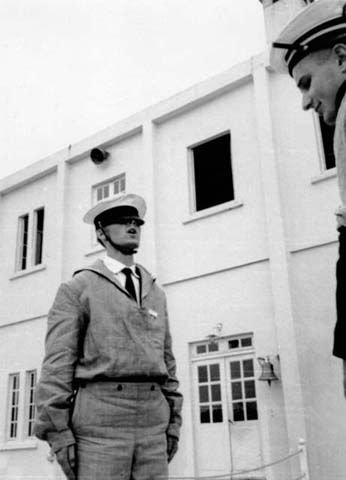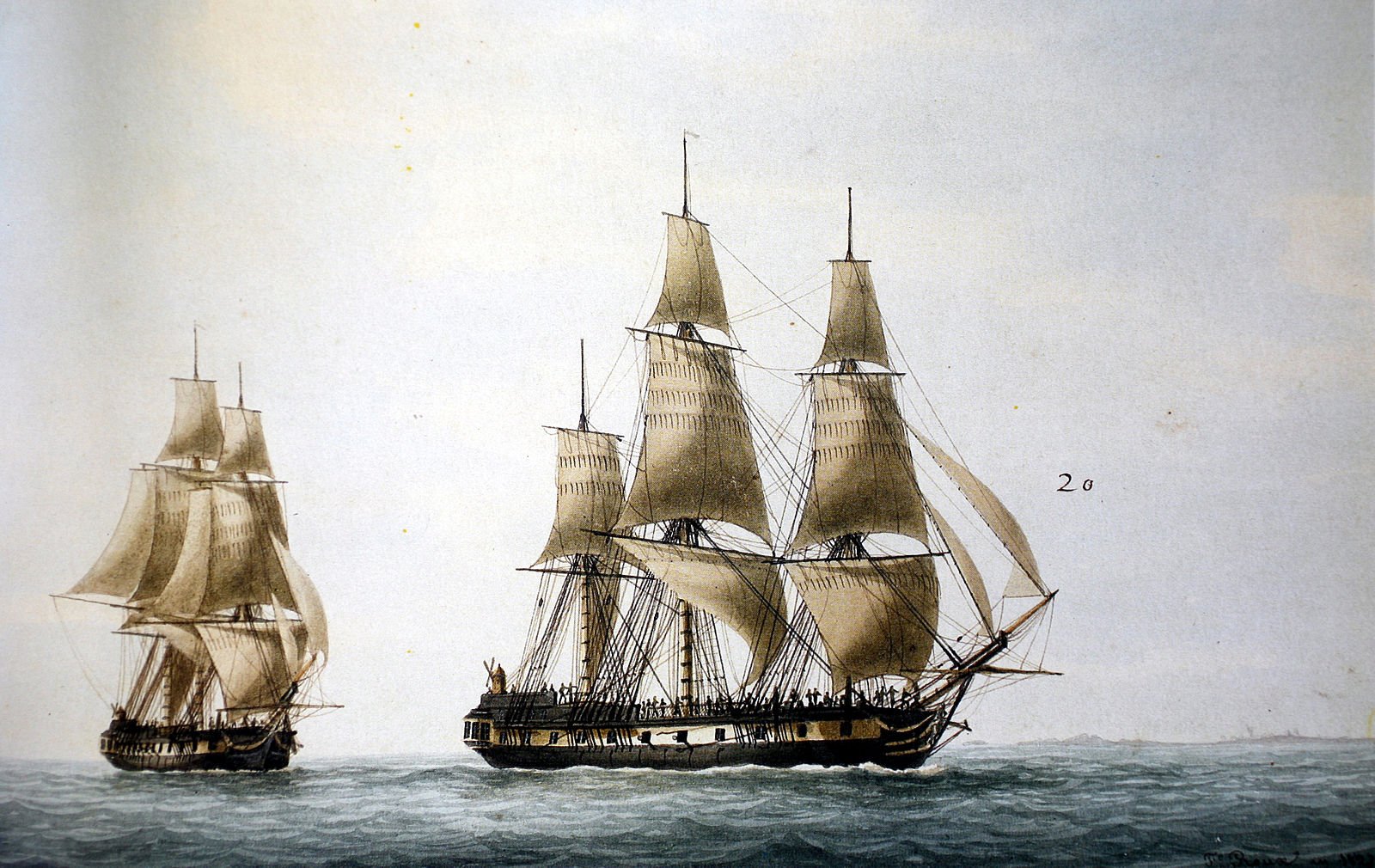This is the story of my life so far: 67 years and counting.
Prequel: A Brief History of my Family in France

The story starts here
Previous episode: Part 22
The First Month at École Navale: the Culations
During the first month of the life of a "fistot" at École Navale, there is an initiation ritual called the "culations".
Culations are various trials that the "aspis" (second year students at École Navale) subject the fistots to create solidarity in the new promotion and to reduce the petty egotisms of those who have never experienced boarding school or living in community.
Some people would characterize the culations as light hazing, but they differ from hazing with two important features:
The aim of the culations is not to humiliate the fistot, but in the contrary to promote solidarity between the fistots of the same promotion and to introduce them to the cultures of the Navy and of the École Navale. Humiliation would be counter productive.
The culations are a centennial ritual that is authorized and controlled by the management of the Naval Academy. Hazing is most of the time semi-clandestine in many institutions.
Many of the instructors at the École Navale are Navy officers, and they have good memories of their own culations, both as fistots and as aspis, and they would not want the culations to become an humiliating ritual.
The culations included some physical activities, both individual and collective, learning the slang (argot-baille) and answers to traditional questions.
The physical activities includes 15 minutes after lunch running in circle with your cap on your eyes, interrupted by verbal questions.
Here is a fistot with his "quette sur les yeux" (cap on his eyes) in front of an aspi. "quette" is a diminutive of "casquette" which French for peaked cap.

A fistot during the culations
source
Collective physical activities include being awaken at 2AM to walk 10 kilometers in the night, being almost locked inside an old decommissioned ship under various pretenses or being pushed into the harbor as a group and forced to swim for 100 meters.
Here is an example of a traditional question and answer that, as a fistot, you need to learn by heart.
An aspi would ask:
- Que fit Monsieur d'Auribeau (What did Monsieur d'Auribeau do?)
The answer that the fistot need to know by heart is:
- Trois virements de bord consécutifs ayant successivement échoué, au large des côtes de Nouvelle Calédonie, qu’un quatrième vint à manquer, c’en était fait de la Recherche qui n’était plus qu’à deux encablures des écueils. La frégate était perdue. Monsieur d’Auribeau fit rassembler tout l’équipage le long des galhaubans tribord arrière, larguer la bouline, choquer la boulinette, donner du mou dans l’écoute de misaine, et le quatrième virement de bord s’effectua dans le plus grand silence.
Approximative translation:
- Three consecutive tacks having successively failed, off the coast of New Caledonia, that a fourth would be missed, it was all over with the Recherche which was only two cables away from the reefs. The frigate was lost. Monsieur d'Auribeau summoned all the crew along the back-hulls on the starboard side, dropped the "bouline", shocked the "boulinette", gave slack in the forearm, and the fourth tack was carried out in the utmost silence.
The "bouline" is a rope moored by the middle of each side of a square sail to make it take the side wind.
The "boulinette" is the "bouline" of the small topsail, oriented as close as possible.
For the record, this "Monsieur d'Auribeau" is Alexandre d'Hesmivy d'Auribeau that indeed was in command of the frigate "La Recherche" after his commanding officer had died of tuberculosis, in May 1793, off the coast of New Caledonia.

La Recherche et L'Espérance, by François Roux
source
I had never been in a boarding school, but as one of 11 siblings and as a boy scout I knew basically what it was to live in community. So, I did rather well as a fistot during the culations, even if sometimes I reacted too impulsively.
The culations last only one month. As one traditional song of École Navale say:
Et s'était couché à l'aurore.
Les culations étaient finies,
Ça n'avait pas été la mort.
And went to bed at dawn.
The culations were over,
It had not been death.
Continue to Part 24
If you like this story, please consider to follow me
Summary
Part 1 - Part 2 - Part 3 - Part 4
Part 5 - Part 6 - Part 7 - Part 8
Part 9 - Part 10 - Part 11 - Part 12
Part 13 - Part 14 - Part 15 - Part 16
Part 17 - Part 18 - Part 19 - Part 20
Part 21 - Part 22

